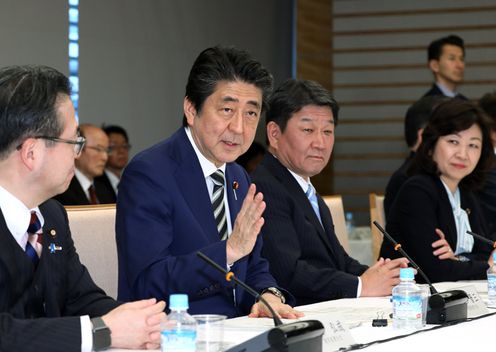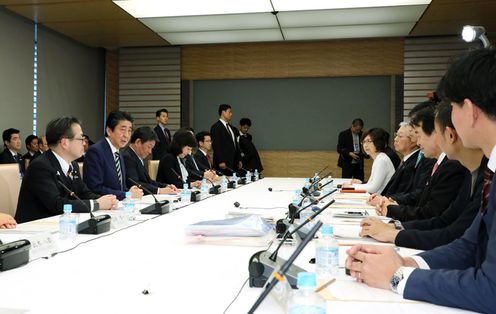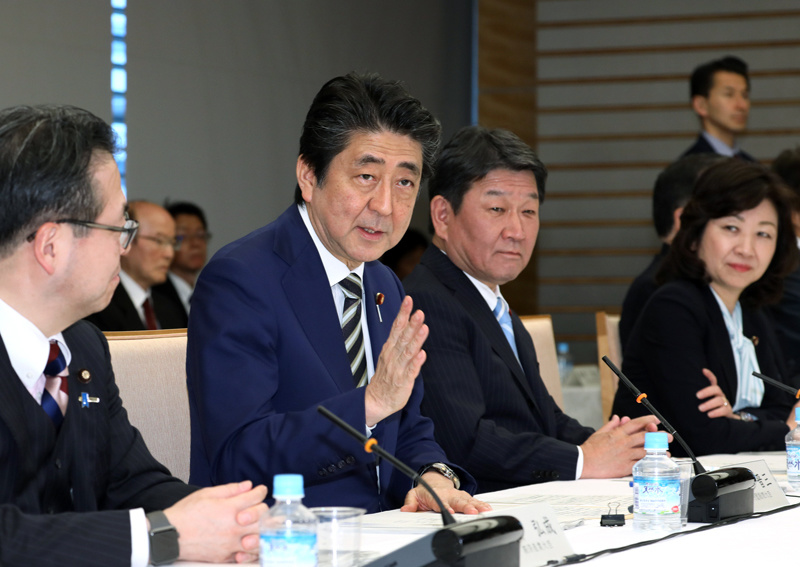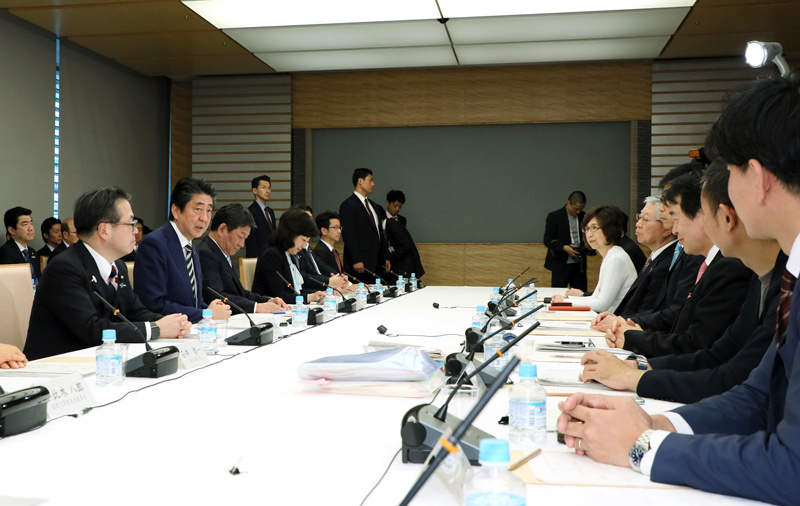Home > News > The Prime Minister in Action > March 2018 > Council on Investments for the Future
The Prime Minister in Action
Council on Investments for the Future
March 30, 2018

Photograph of the Prime Minister making a statement (1)

Photograph of the Prime Minister making a statement (2)
[Provisional Translation]
On March 30, 2018, Prime Minister Shinzo Abe held the 14th meeting of the Council on Investments for the Future at the Prime Minister’s Office.
At the meeting, there was discussion on the mobility revolution (autonomous driving) under Society 5.0 and productivity revolutions from governmental organizations.
Based on the discussion, the Prime Minister said,
“By the time of the 2020 Tokyo Olympic and Paralympic Games, we will realize an autonomous driving society. The public and private sectors have worked together to conduct demonstration tests towards achieving this major goal. We are now about to enter the business development stage. We will further accelerate various initiatives with the aim of facilitating the development of diverse businesses. Such initiatives include the establishment of a zone in the seaside area of Tokyo for tests of safer autonomous driving technologies integrating traffic signal information.
Today, Minister Matsuyama compiled for us a set of guidelines on the direction for the development of safety regulations, traffic rules, and other standards for the commercialization of autonomous driving. Autonomous driving will be a major asset for the productivity revolution. I want the relevant ministries and agencies to begin preparation for legislation aiming at a safe and sound autonomous driving society, and actively take the lead in the creation of international rules. In strongly advancing the productivity revolution, let us first ‘practice what we preach’ Government organizations must proactively make use of the latest technology and work to thoroughly improve productivity themselves.
Please hasten discussions toward the early submission of the ‘Digital First’ bill, which includes measures such as exemption from the submission of additional attached documents.
Despite the great advances in technology in this day and age, when people move houses, they still have to write the same information in 20 different places. This is a very specific example, as it just so happens that one of my executive secretaries recently moved and had to write the same information several times.
Processing taxes and social security documents for their employees are large burdens for many companies, especially small- and medium-sized enterprises. These burdens stifle productivity improvements in companies.
We must look at administrative procedures from the viewpoints of citizens, who are the ones who receive governmental services, and work to overcome silos in such procedures. We will prioritize the procedures for deaths, inheritance, and the establishment of corporations as core projects, and, starting from next year, work to enable the completion of these procedures online and in one place by FY2020. Please proceed thoroughly with these reforms from a user-oriented perspective, including initiatives that will make it possible for users to allow the verification of their identification with their smartphones.
I want the IT Strategic Headquarters to act as a control tower and eliminate vertical segmentation, and I want the relevant ministries and agencies to work as one to strongly promote the productivity revolution at the national and local levels.”


